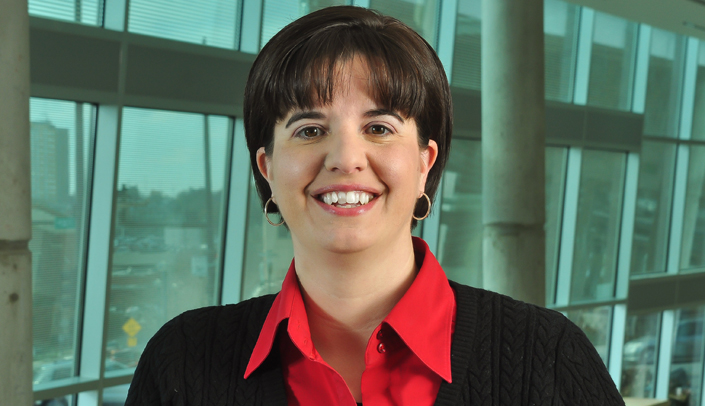Since I took the sustainability manager position, I’ve been excited to get so many questions from members of the UNMC/Nebraska Medicine community about sustainability. I love that people are thinking about different ways to do things, understanding that what they do has an impact, and working to make the world a better place.
Hands down, the most common question I get is “What is sustainability?” It comes from everybody, from my grandma to the graduate student down the hall.
|
LIVEGREEN |
by Melanie Stewart |
Is it being green? Yes, sort of. Are you an environmental activist? Kind of. Tree-hugging hippie? No, though I have hugged a tree. But that’s a story for another day . . .
So with that in mind, I thought I would try to help.
Here’s the Webster Dictionary definition:
Sustainability: capable of being sustained. Thanks “Webster,” not helpful.
The Brundtland Commission, formed by the United Nations, defined sustainability as “development which meets the needs of the present without compromising the ability of future generations to meet their own needs.”
This definitely has environmental aspects to it. It’s hard to have a future meeting its needs with dirty air and water, and soil so depleted that crops won’t grow.
It’s also economic — if we spend more than we take in, how will we survive?
It’s about planning — monitoring trends now to avert disaster in years to come.
It’s about health and sustaining the quality of our own lives — which again, is hard to do if we are breathing dirty air and eating poorly.
It’s about ensuring that all people have access to the essentials, conserving natural resources, and looking for better ways to meet our needs.
It’s also development — planning for real progress and responsible growth.
When we plan different initiatives on campus we always look for the “triple bottom line”: something that is economically feasible for the campus, has a positive impact on the environment and improves health.
For example, when we conserve electricity, OPPD burns less coal. We save money on utilities (your tax dollars), and that money can be spent on our mission. Less coal burning means less pollution in the atmosphere, cleaner air to breathe, and less fuel burned to get the coal here. It’s a win-win-win.
Now that we have that all straightened out, I’d like to hear from you. What words come to your mind when you hear sustainability? Post thoughts/comments below or send them to me here.


Able to continue indefinitely – in my mind it means replenishing what is used, completing the cycle. Inhaling without exhaling is not sustainable; I have to exhale (give back) in order to take in more.
To me, sustainability means taking the long term approach. Long term thinking and plans. It's not being short sighted and going for the quick buck. It's thinking about the quality of what is left behind after you get what you need. Not creating problems for "someone else" to worry about resolving since you "won't be here" anyway. Instead, slower progress that doesn't do more damage than good. That is sustainable and it shows you care about something other than yourself.